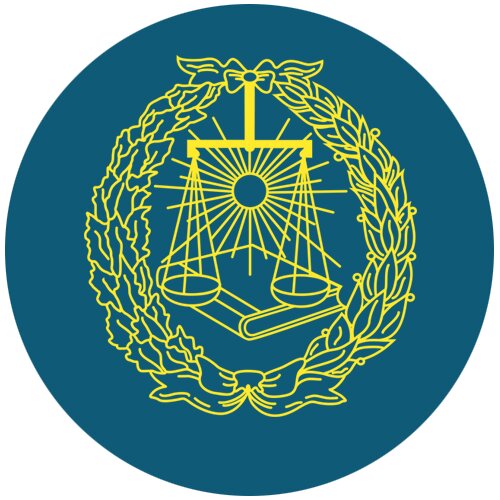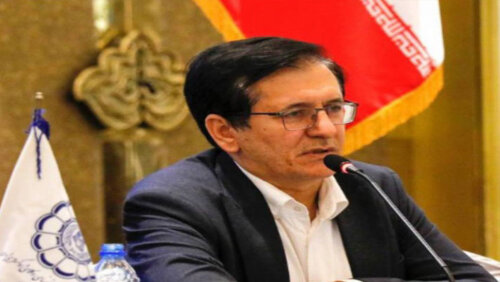Best Discrimination Lawyers in Iran
Share your needs with us, get contacted by law firms.
Free. Takes 2 min.
Or refine your search by selecting a city:
List of the best lawyers in Iran
About Discrimination Law in Iran:
Discrimination in Iran is prohibited by law and is considered a violation of human rights. The Iranian constitution guarantees equal rights for all citizens, regardless of their race, ethnicity, religion, or gender. However, discrimination still exists in various forms in Iranian society, and individuals may seek legal remedy if they believe they have been discriminated against.
Why You May Need a Lawyer:
You may need a lawyer in cases of discrimination to help you understand your legal rights, navigate the complex legal system, and represent you in court if needed. A lawyer can help you gather evidence, file a complaint, negotiate with the other party, and ensure that your rights are protected throughout the legal process.
Local Laws Overview:
In Iran, discrimination is addressed by various laws and regulations, including the Civil Code, Labor Law, and the Constitution. Discrimination based on race, ethnicity, religion, or gender is prohibited, and individuals have the right to file a complaint with the relevant authorities, such as the Ministry of Labor and Social Affairs or the Iranian Judiciary System.
Frequently Asked Questions:
1. What types of discrimination are prohibited in Iran?
In Iran, discrimination based on race, ethnicity, religion, gender, or disability is prohibited by law.
2. How can I file a discrimination complaint in Iran?
You can file a discrimination complaint with the relevant authorities, such as the Ministry of Labor and Social Affairs or the Iranian Judiciary System.
3. What legal remedies are available for victims of discrimination in Iran?
Victims of discrimination in Iran may be entitled to compensation, reinstatement of their rights, or other remedies as determined by the court.
4. Can I be discriminated against in the workplace in Iran?
No, discrimination in the workplace based on race, ethnicity, religion, gender, or disability is prohibited in Iran.
5. What should I do if I believe I have been discriminated against in Iran?
If you believe you have been discriminated against, you should seek legal advice from a lawyer and file a complaint with the relevant authorities.
6. Is there a statute of limitations for filing a discrimination complaint in Iran?
The statute of limitations for filing a discrimination complaint in Iran may vary depending on the specific case and the relevant laws.
7. Can I represent myself in a discrimination case in Iran?
While it is possible to represent yourself in a discrimination case in Iran, it is recommended to seek legal assistance to ensure that your rights are protected and that you have the best possible outcome.
8. Are there any non-governmental organizations in Iran that provide assistance to victims of discrimination?
Yes, there are several non-governmental organizations in Iran that provide assistance to victims of discrimination, such as the Iranian Bar Association and human rights organizations.
9. Are there any free legal services available for victims of discrimination in Iran?
There may be free legal services available for victims of discrimination in Iran through the Iranian Judiciary System or non-governmental organizations that provide legal assistance to marginalized communities.
10. Can I be discriminated against based on my sexual orientation in Iran?
Unfortunately, discrimination based on sexual orientation is not specifically prohibited by law in Iran, and individuals may face discrimination based on their sexual orientation.
Additional Resources:
If you need legal advice or assistance related to discrimination in Iran, you can contact the Iranian Bar Association, the Ministry of Labor and Social Affairs, or human rights organizations for support and guidance.
Next Steps:
If you believe you have been discriminated against in Iran, it is important to seek legal advice from a qualified lawyer who can help you understand your rights and options for legal recourse. Contact the relevant authorities and gather evidence to support your claim, and consider filing a complaint to seek justice for the discrimination you have faced.
Lawzana helps you find the best lawyers and law firms in Iran through a curated and pre-screened list of qualified legal professionals. Our platform offers rankings and detailed profiles of attorneys and law firms, allowing you to compare based on practice areas, including Discrimination, experience, and client feedback.
Each profile includes a description of the firm's areas of practice, client reviews, team members and partners, year of establishment, spoken languages, office locations, contact information, social media presence, and any published articles or resources. Most firms on our platform speak English and are experienced in both local and international legal matters.
Get a quote from top-rated law firms in Iran — quickly, securely, and without unnecessary hassle.
Disclaimer:
The information provided on this page is for general informational purposes only and does not constitute legal advice. While we strive to ensure the accuracy and relevance of the content, legal information may change over time, and interpretations of the law can vary. You should always consult with a qualified legal professional for advice specific to your situation.
We disclaim all liability for actions taken or not taken based on the content of this page. If you believe any information is incorrect or outdated, please contact us, and we will review and update it where appropriate.
Browse discrimination law firms by city in Iran
Refine your search by selecting a city.










